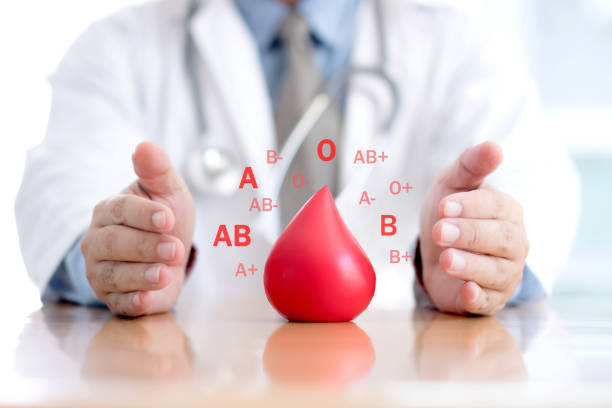
The blood group of a person is determined by the genes inherited from parents. There are 4 main blood groups or types of blood as we call them – A, B, AB and O. And further, each of these groups can be either RhD positive or RhD negative, which means in total there are 8 blood groups.
Antibodies and antigens in the blood
Antibodies are proteins found in plasma and are part of the body's natural defences. They recognise foreign substances, germs, and alert the immune system, which destroys them. Antigens are protein molecules found on the surface of red blood cells.
Blood constitutes of red blood cells, white blood cells and platelets present together in a liquid called plasma. Blood group of a person is identified by the antibodies and antigens present in the blood.
Understanding the ABO blood group system
ABO is the human blood grouping system that groups the blood into different types, based on the presence or absence of certain markers on the surface of red blood cells.
During a blood transfusion, the ABO blood group system is used to match the blood type of the donor and the person receiving the transfusion. People with blood type O can donate blood to anyone and are called universal donors.
People with blood type AB can accept blood from all donors and are called universal recipients. People with type A or B can receive matching blood or type O blood.There are 4 main blood groups defined by the ABO system.
The four main blood types of blood groups based on the ABO grouping system are A, B, O, and AB.
- Blood group A – has A antigens on the red blood cells with anti-B antibodies in the plasma
- Blood group B – has B antigens with anti-A antibodies in the plasma
- Blood group O – has no antigens, but both anti-A and anti-B antibodies in the plasma
- Blood group AB – has both A and B antigens, but no antibodies
- Blood group O is the most common blood group.
The reason why group A blood must never be given to someone who has group B blood and vice versa is that receiving blood from the wrong ABO group can be life-threatening. For example, if someone with group B blood is given group A blood, their anti-A antibodies will attack the group A cells.
As group O red blood cells do not have any A or B antigens, it can safely be given to any other group.
Significance of the Rh system in blood grouping
Red blood cells sometimes will have another antigen, a protein known as the RhD antigen. If this is present, your blood group will be RhD positive. If it's absent, your blood group will be RhD negative.
This means you can be 1 of 8 blood groups:
- A RhD positive (A+)
- A RhD negative (A-)
- B RhD positive (B+)
- B RhD negative (B-)
- O RhD positive (O+)
- O RhD negative (O-)
- AB RhD positive (AB+)
- AB RhD negative (AB-)
In most cases, O RhD negative blood (O-) can safely be given to anyone. Therefore, it's often used in medical emergencies when the blood type is not immediately known.
It's safe for most recipients because it does not have any A, B or RhD antigens on the surface of the cells, and is compatible with every other ABO and RhD blood group.
Blood group test
To determine your blood group, your red cells will be mixed with different antibody solutions. And for instance, if the solution contains anti-B antibodies and you have B antigens on your cells (you're blood group B), it will clump together.
If the blood does not react to any of the anti-A or anti-B antibodies, meand it's blood group O. A series of tests with different types of antibody will help to identify your blood group.
In case of a blood transfusion – where blood is taken from one person and given to another, the blood will be tested against a sample of donor cells that contain ABO and RhD antigens. If there's no reaction, donor blood with the same ABO and RhD type can be used.
Keynote
Blood grouping helps you safely donate and help others, but it can also let you know if you are at risk for certain health conditions in the future.
The most important reason to know your blood type is in case of an emergency. In a situation of blood transfusion, you'll need compatible blood, because an incompatible blood group can cause blood cells to clump, which can be fatal.
Knowing your blood type can help predict some conditions that can occur during pregnancy, such as Rh incompatibility between mom and baby.

